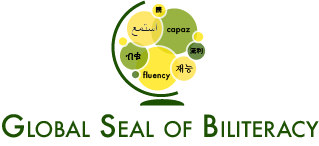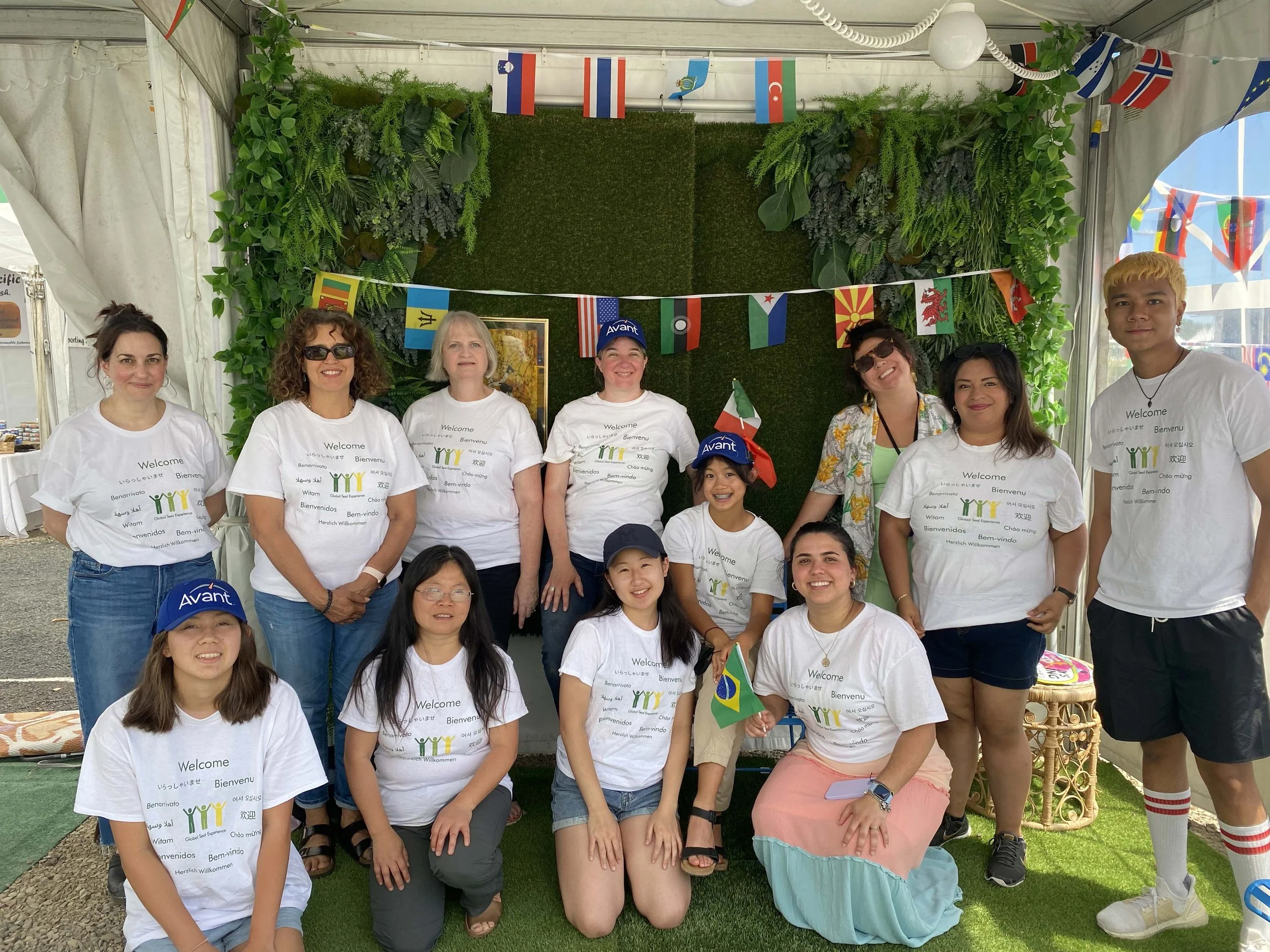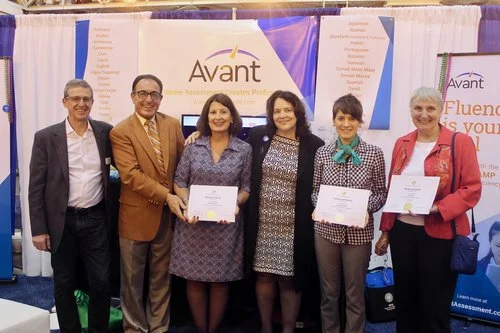In today's globalized economy, language skills are more than just a nice-to-have; they're a critical asset for businesses looking to expand their reach and boost their bottom line. In fact, language ignorance acts as a quasi-tax on businesses, costing them an estimated 7% in lost opportunities. Bilingual employees offer companies a competitive edge, enabling them to break into new markets and forge stronger connections with diverse customer bases. This blog post explores the compelling reasons for hiring bilingual talent and identifying existing linguistic assets within your organization.
In a world where AI-powered translation tools are becoming more advanced and accessible, it’s easy for employers to believe that tech alone can handle their multilingual needs. But while AI can quickly translate words, it can’t replace the uniquely human skills that truly drive workplace success—like building relationships, understanding cultural nuances, and creating trust. Multilingual employees not only bridge language gaps but also bring empathy, emotional intelligence, and adaptability—qualities that machines can't replicate. These soft skills are what make human interaction meaningful, fostering collaboration and deeper connections in ways that AI simply can't achieve.
Nervous about learning a second language? You’re not alone! It’s totally normal to feel anxious, but here’s the secret: you’re already capable of way more than you think! Whether you’re worried about tricky grammar rules, memorizing new words, or speaking in front of others, this FAQ list is here to show you that learning a new language doesn’t have to be scary. In fact, it can be fun, rewarding, and easier than you expect. Ready to turn those nerves into confidence? Let’s tackle your biggest questions and help you feel excited about learning a new language and all of the opportunities it brings!
Multiple surveys suggest that certifications earned through validated testing of skills are more highly valued by students than test scores earned through course completion. These certifications provide concrete proof of an individual’s expertise and proficiency in specific areas, offering a standardized, reliable measure of their abilities. By passing rigorous standards-based exams, individuals demonstrate their mastery of relevant skills, which are recognized and respected by academic institutions, employers, and industry professionals.
Did you know speaking another language could fast-track your way through college? That's right—documenting your language skills with a Global Seal of Biliteracy can help you skip beginner classes, earn college credits, save money, and give you more time for the fun stuff (or extra Netflix binging, we won’t judge). A Global Seal of Biliteracy certificate can be shared digitally, counts as an International Honor on the CommonApp, and may help you earn up to 14-16 hours of college credit!
Employers are increasingly in search of job candidates who possess a variety of soft skills. Soft skills, sometimes referred to as “people skills” or “interpersonal skills” can be described as a set of personal attributes, traits, and behaviors that help people interact effectively with others in a workplace or social setting. Based on the findings of the National Association of Colleges and Employers (NACE) Job Outlook 2024 survey, those hoping to impress future employers should
Have you ever wondered about the real-world impact of your language skills? They can be the golden ticket to your dream college, job, or global adventure. If you're on a language-learning journey, you're already on the path to reaping immense rewards. Whether you’re working on second, third, or heritage language proficiency, you have a remarkable advantage. But are you leveraging these skills to their full potential?
Explore the complexities of language proficiency levels with this ultimate guide that dives deep into the world's leading scales—CEFR, ACTFL, and ILR. Whether you're an educator, employer, or language learner, understanding these scales is crucial for academic planning, career development, and personal growth. Explore the unique features, focus areas, and international applicability of each scale to make informed decisions. Don't miss out on this comprehensive resource that empowers you to navigate the intricate landscape of language proficiency.
Navigating the world of English language tests can be daunting. With so many options available, how do you know which one is right for you? This blog post will guide you through six of the most popular tests aligned with the Common European Framework of Reference for Languages (CEFR):
Maximize your bilingual skills on the Common App with our comprehensive guide. Learn how to strategically highlight your Global or State Seal of Biliteracy to stand out in your college applications. Discover the best sections to showcase your language proficiency and honors.
Discover the multifaceted benefits of language certification, and understand how it can enhance job prospects and facilitate professional growth
There are many free ways to “level up” your language skills in order to earn a Global Seal of Biliteracy. Apps may help you acquire new vocabulary and free online courses, podcasts and YouTube videos offer lots of content for language learners. These may be especially useful to understand how a language works or its “grammar.” The best way, however, to learn a language may just be to IMMERSE yourself in it. We’ve included a few ideas below to help you do that in each skill area.
Global CRED was a first of its kind. It was imagined as a virtual space for language learners of all ages to find answers to TWO BIG QUESTIONS: (1) How do I Level Up to earn a Seal of Biliteracy? and (2) How do I Leverage my Language Skills for Future Opportunities?
Language learning takes places in a variety of ways and places. In fact, language learners are quite diverse, and not all language is acquired in a classroom. The Global Seal is now offering the opportunity to have your language skills certified, even if you are not enrolled in a traditional language program.
The Global Seal of Biliteracy is a universal credential that celebrates language skills at three levels of fluency and expands future opportunities for its recipients. The Global Seal is available in over 100 languages through tests that have been approved by our independent Board of Advisors. The Global Seal credential may be awarded by a school to its bilingual students in any career area, providing a powerful job-seeking advantage.
Angello is a Spanish & ESL teacher at Long Branch High School, and Spanish adjunct professor at Monmouth University. Born and raised in Lima, Peru, he holds a B.A. in Spanish Literature from Montclair State University and a M.A.T. in Spanish with endorsements in ESL and Bilingual/Bicultural education. He has just received his Global Seal of Biliteracy at the Professional Fluency level and we had the opportunity to ask him a few questions about his experience.
Adopting a Seal of Biliteracy program has the power to bring positive, impactful change to both language learners and language programs alike. Several of these benefits are chronicled in the Seal of Biliteracy Implementation: Benefits & Challenges study published in Foreign Language Annuals (April 2018) by Kristin Davin, Amy Heineke and Linda Egnatz, Global Seal of Biliteracy Executive Director. The most exciting result is the increased motivation of students to not only continue language study but to acquire greater levels of proficiency. A student interviewed for a study Focus Group said, “It gives you a motive to finish. Before I was like why am I in this class?”
In the past month, three significant events signal an opportunity to shift the Seal of Biliteracy paradigm. First, in May, while speaking at the Office of English Language Acquisition (OELA) Multiliteracy Symposium, I had the honor to announce that Southern New Hampshire University (SNHU) now offers a college credit program to any Global Seal of Biliteracy recipient. This means, for example, that someone with a Global Seal of Biliteracy in Chinese, Somali or Chin (or any other language we credential) can receive transferable World Language college credit!
Global Seal of Biliteracy Executive Director, Linda Egnatz, presented 111 Inaugural Global Seal of Biliteracy awards at the American Council on the Teaching of Foreign Languages (ACTFL) annual convention held in New Orleans, Louisiana, November 16-18, 2018.
























There are many reasons why students want a credential that recognizes their bilingual skills. According to the 2018 study, The Seal of Biliteracy: Successes and challenges to implementation, by Kristin Davin, Amy Heineke and Linda Egnatz, Global Seal of Biliteracy Executive Director, language learners believe that a Seal of Biliteracy can provide them with: